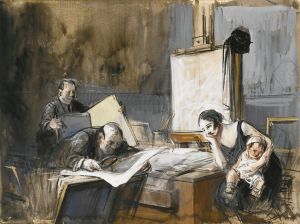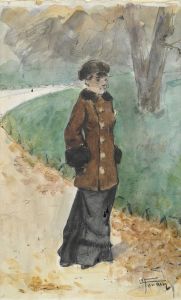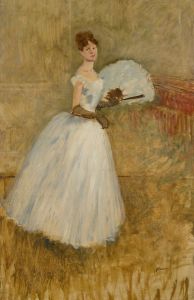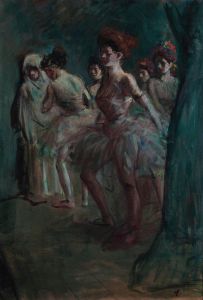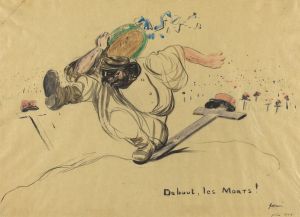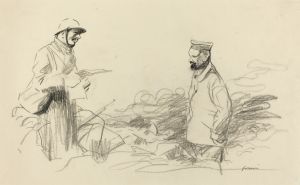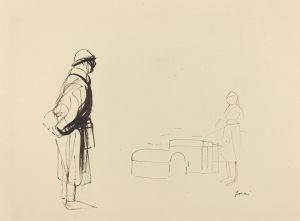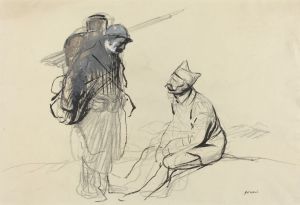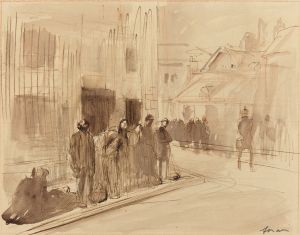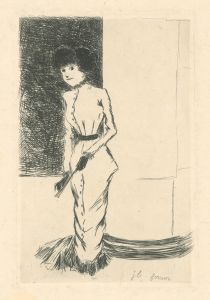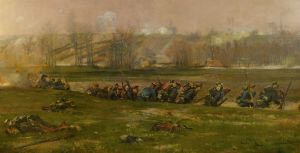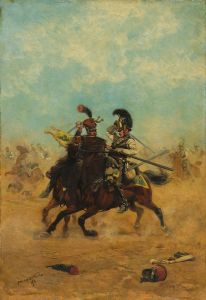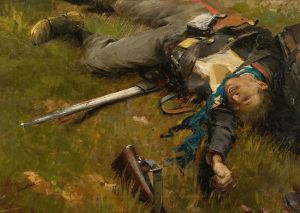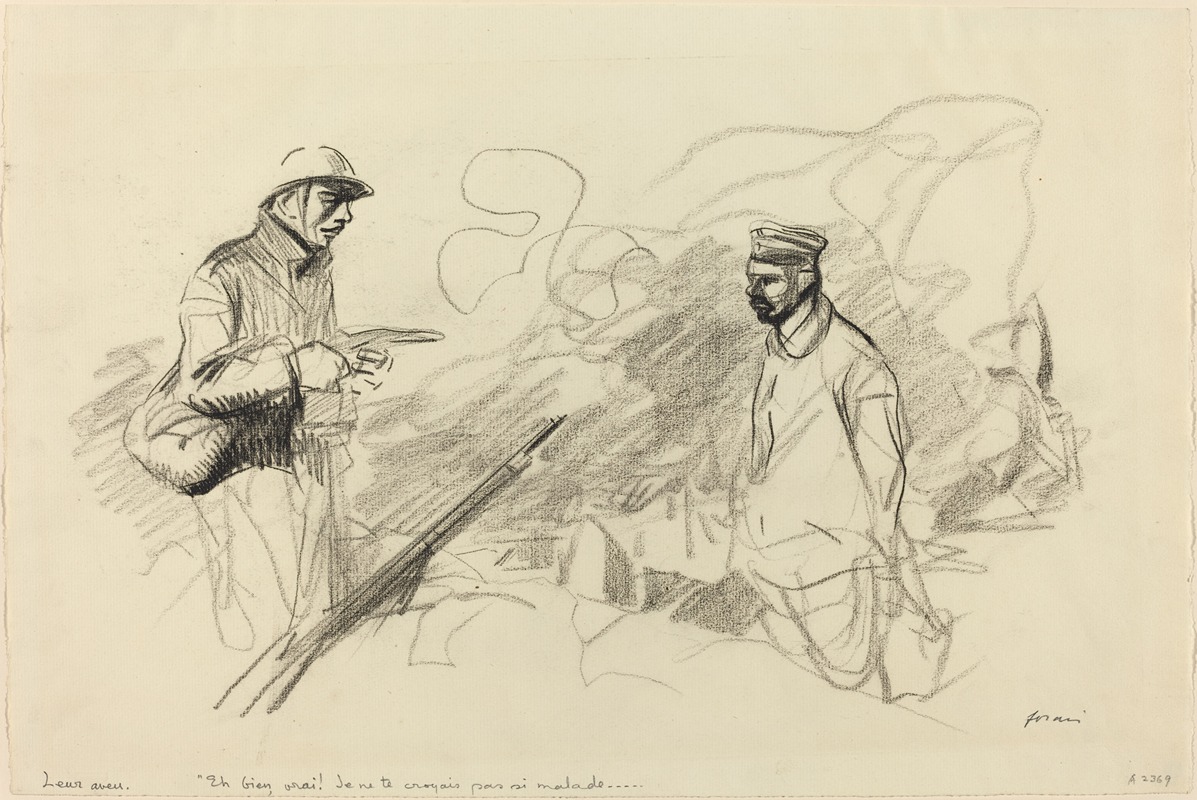
Poilu Acknowledging German Soldier
A hand-painted replica of Jean-Louis Forain’s masterpiece Poilu Acknowledging German Soldier, meticulously crafted by professional artists to capture the true essence of the original. Each piece is created with museum-quality canvas and rare mineral pigments, carefully painted by experienced artists with delicate brushstrokes and rich, layered colors to perfectly recreate the texture of the original artwork. Unlike machine-printed reproductions, this hand-painted version brings the painting to life, infused with the artist’s emotions and skill in every stroke. Whether for personal collection or home decoration, it instantly elevates the artistic atmosphere of any space.
Jean-Louis Forain was a notable French artist known for his contributions to Impressionism and his poignant depictions of social scenes. One of his works, "Poilu Acknowledging German Soldier," captures a moment from World War I, reflecting the complex human emotions and interactions during wartime.
Jean-Louis Forain was born on October 23, 1852, in Reims, France. He became associated with the Impressionist movement, although his style evolved over time to incorporate elements of realism and satire. Forain was deeply influenced by the works of Honoré Daumier and Edgar Degas, and he often focused on scenes of everyday life, the theater, and the legal system. His work is characterized by its sharp wit and keen observation of human behavior.
"Poilu Acknowledging German Soldier" is a painting that depicts a French soldier, known colloquially as a "poilu," which means "hairy one" in French, a term used to describe the infantrymen of the French Army during World War I. The painting captures a moment of recognition or acknowledgment between a French soldier and a German soldier. This interaction is significant as it reflects the shared humanity and mutual respect that can exist even between enemies in the context of war.
The painting is notable for its emotional depth and the subtlety with which Forain conveys the complex emotions of the soldiers. The poilu is depicted with a sense of dignity and resilience, while the German soldier is portrayed in a manner that suggests a moment of mutual understanding or respect. This depiction challenges the often dehumanizing narratives of war by highlighting the personal experiences and emotions of individual soldiers.
Forain's work during World War I was not limited to painting; he also contributed to the war effort through his illustrations and cartoons, which were published in various newspapers and magazines. These works often carried a satirical edge, critiquing the absurdities and tragedies of war while also serving as a form of propaganda to bolster French morale.
"Poilu Acknowledging German Soldier" is part of Forain's broader body of work that explores the themes of war, human interaction, and the social dynamics of his time. His ability to capture the nuances of human emotion and the complexities of social interactions has earned him a lasting place in the history of art.
The painting is a testament to Forain's skill as an artist and his ability to convey powerful messages through his work. It serves as a reminder of the shared humanity that exists even in the most challenging circumstances and the potential for empathy and understanding across enemy lines.
Jean-Louis Forain passed away on July 11, 1931, in Paris, leaving behind a legacy of work that continues to be studied and appreciated for its artistic and historical significance. His paintings and illustrations remain an important part of the cultural record of the late 19th and early 20th centuries, offering insights into the social and political issues of his time.






